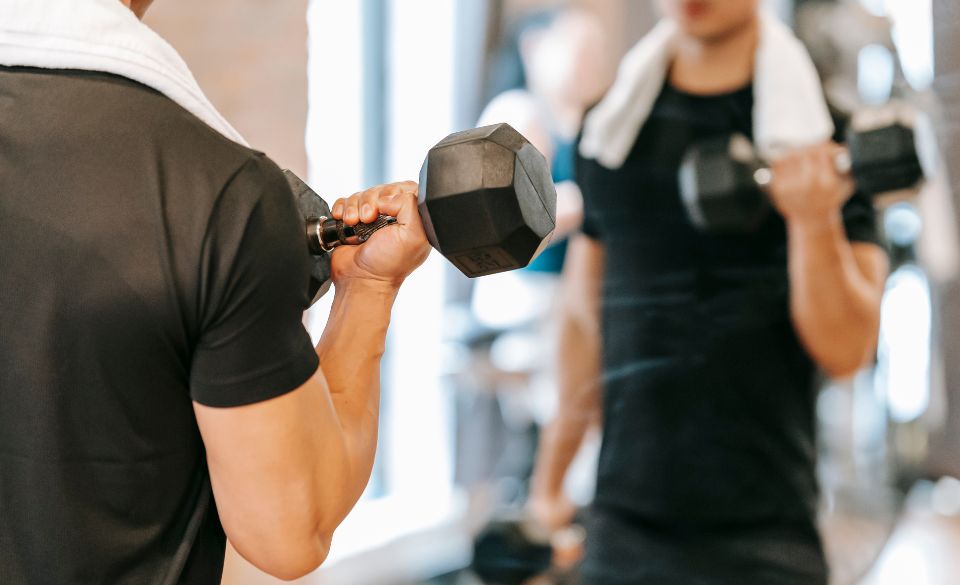
Can You Lift Weights When Fasting? A Complete Guide
Page Contents
Fasting has gained popularity in recent years for its potential health benefits, including weight loss, improved metabolic health, and increased longevity. But for those who love hitting the gym, a common question arises: Can you lift weights when fasting? In this comprehensive guide, we’ll explore the science behind fasting and weightlifting and provide insights into how you can make it work for your fitness goals.
The Science of Fasting
Before we delve into the compatibility of fasting and weightlifting, it’s essential to understand what fasting entails. Fasting involves abstaining from food for a specified period, which can range from several hours to several days. One of the most popular fasting methods is intermittent fasting, where you cycle between periods of eating and fasting.
Numerous studies have shown the potential benefits of intermittent fasting, including improved insulin sensitivity, reduced inflammation, and enhanced fat burning. However, the effects of fasting on exercise performance, particularly weightlifting, have been a subject of debate.
Fasting and Weightlifting: The Pros and Cons
Pros of Weightlifting While Fasting
1. Enhanced Fat Utilization
When you lift weights while fasting, your body may rely more on stored fat as a source of energy. A study published in the “Journal of the International Society of Sports Nutrition” found that fasting before morning exercise increased fat oxidation, which could be advantageous for individuals aiming to reduce body fat.
2. Improved Insulin Sensitivity
Intermittent fasting has been linked to improved insulin sensitivity, which can benefit muscle growth. Enhanced insulin sensitivity may help shuttle nutrients like glucose and amino acids into muscle cells more efficiently.
3. Increased Growth Hormone
Fasting can trigger the release of growth hormone, which plays a crucial role in muscle repair and growth. This hormone promotes fat breakdown and stimulates muscle protein synthesis.
Cons of Weightlifting While Fasting
1. Reduced Workout Intensity
Lifting weights on an empty stomach may lead to decreased workout intensity and performance. Without readily available glucose, your body may struggle to maintain high-intensity efforts during resistance training.
2. Risk of Muscle Catabolism
Fasting for extended periods, especially without adequate protein intake, can potentially lead to muscle breakdown. To counteract this, it’s essential to prioritize protein consumption during your eating window.
3. Dehydration and Fatigue
Exercising in a fasted state can increase the risk of dehydration and fatigue. Without proper hydration and fuel, you may find your workouts more challenging and tiring.
Strategies for Weightlifting During Fasting
If you’re determined to lift weights while fasting, here are some strategies to help you make the most of your workouts:
1. Choose the Right Fasting Window
Opt for a fasting window that aligns with your workout schedule. Some individuals find success with shorter fasts, such as 16/8 intermittent fasting, where they fast for 16 hours and eat during an 8-hour window. This allows you to exercise in a fed state.
2. Stay Hydrated
Dehydration can hamper your workout performance, so make sure to stay adequately hydrated during your fasting period. Water, herbal teas, and black coffee are excellent options to keep you hydrated without breaking your fast.
3. Prioritize Protein
To mitigate the risk of muscle catabolism, prioritize protein consumption in your post-workout meal. Include lean protein sources like chicken, fish, tofu, or beans to support muscle repair and growth.
4. Monitor Your Body
Listen to your body and pay attention to how you feel during fasting workouts. If you notice significant drops in energy or dizziness, consider adjusting your fasting and workout timing.
Consultation and Individualization
It’s worth emphasizing that no single approach to fasting and weightlifting will work for everyone. Your unique physiology, fitness level, and goals play a significant role in determining what’s best for you. That’s why consulting with a healthcare professional, registered dietitian, or fitness trainer can be incredibly beneficial.
These experts can help you create a tailored plan that considers your specific needs and objectives. They can provide guidance on meal timing, nutrient intake, and workout programming to optimize your results while ensuring your overall health and safety.
In summary, lifting weights while fasting is a feasible approach, and it can yield various benefits for some individuals, such as improved fat utilization and insulin sensitivity. However, it’s not a one-size-fits-all solution, and the impact on your performance and muscle-building goals may vary.
The key takeaway is to prioritize your body’s signals and needs. Whether you decide to embrace fasting and weightlifting or prefer to keep them separate, your ultimate goal should be to maintain a sustainable and balanced fitness routine that supports your well-being. Remember that consistency, proper nutrition, and listening to your body are the foundations of a successful fitness journey.
The Verdict
In conclusion, lifting weights while fasting is indeed possible and can offer specific benefits. However, it’s crucial to approach it mindfully and consider your individual goals and preferences. If your primary goal is muscle gain and performance, you may find it more beneficial to consume a balanced meal before your workout to ensure you have sufficient energy and nutrients.
On the other hand, if you’re interested in fat loss or want to explore the potential benefits of fasting, you can experiment with fasting and weightlifting to see how your body responds. Ultimately, the key is to strike a balance that supports your fitness goals while respecting your body’s needs and limitations. If you’re new to fasting or have any underlying health conditions, it’s advisable to consult with a healthcare professional or nutritionist before incorporating fasting into your fitness routine.


